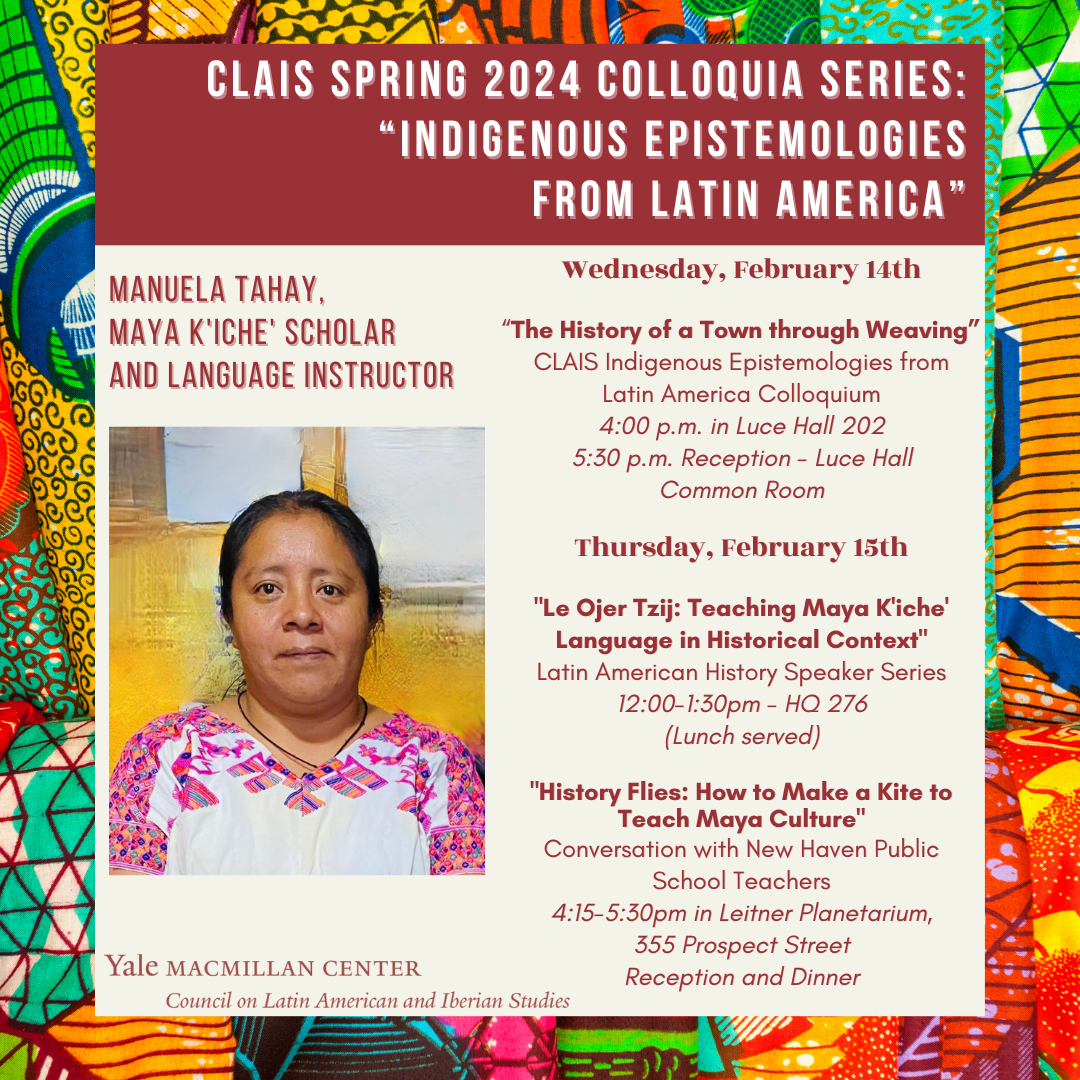CLAIS Colloquia Series
CLAIS Spring 2024 Colloquia Series: “Indigenous Epistemologies from Latin America”
This series seeks to bring together a myriad of voices from the Latin American and Caribbean region to explore current issues that are at the center of the lives of Indigenous peoples and their communities.
From debates surrounding democratic processes, increased migration, and demands for autonomy to the defense of their land and environment, language, and culture, Indigenous peoples in Latin America are generating their own political, cultural, and social alternatives to a system that seeks to encroach on their lives and territories.
Recognizing the importance and urgency of these topics, the Council on Latin America and Iberian Studies at Yale seeks to put together a year-long colloquia series to address concerns at the center of Latin American Indigenous lives. The series is also intended as a space to generate conversation and collaboration between activists, academics, and students.
This colloquium will not only increase the visibility of relevant issues occurring in the region but will also provide an opportunity for students to learn from alternative modes of knowledge production and present-day strategies of resistance and survival.
Indigenous peoples represent roughly ten percent of the total population of the Latin American region. They represent some of the most historically marginalized and vulnerable sectors in the world, and in recent years, they have also faced increased violence and poverty exacerbated by the COVID-19 pandemic. Indigenous women face increased marginalization and racism while also standing at the forefront of many of the social, political, and cultural movements seeking change. However, there are also important notions of resistance, creation, art, culture, and joy – Indigenous communities in Latin America thrive.
At the core of the colloquia is the desire to highlight alternative voices more broadly in Latin America, paying special attention to the voices of indigenous women from the Americas and the diaspora.
Speakers and Dates
Manuela Tahay is a Maya K’iche’ educator from Nahualá, Guatemala. She teaches Maya K’iche’ language and culture, with over a decade of experience working with beginning to advanced students. She currently teaches K’iche’ language and culture at UT-Austin (academic year) and Tulane University’s Maya Language Institute (summer); she previously taught at Vanderbilt University.
February 14

Irma Alicia Velásquez Nimatuj is a Maya-K’iche’ journalist and social anthropologist. Dr. Nimatuj is an international spokeswoman for indigenous communities in Central America. Among her work as an activist, she also served as an advisor for the UN Women as a representative for Latin America and the Carribean.
March 27
Marlen Rosas is an Assistant Professor of History at Haverford College. Her research focuses on twentieth-century indigenous peoples’ resistance movements in Latin America, specifically indigenous labor movements led by women in Ecuador through an oral and intellectual history approach.
April 25
Olímpio Iwyramu Guajajara is from the Indigenous Guajajara tribe of Brazil’s Araribóia territory. He is a leader of the activist group called the Forest Guardians alongside other Guajajara tribe members who are taking radical action against illegal logging in the rainforest.
May 10